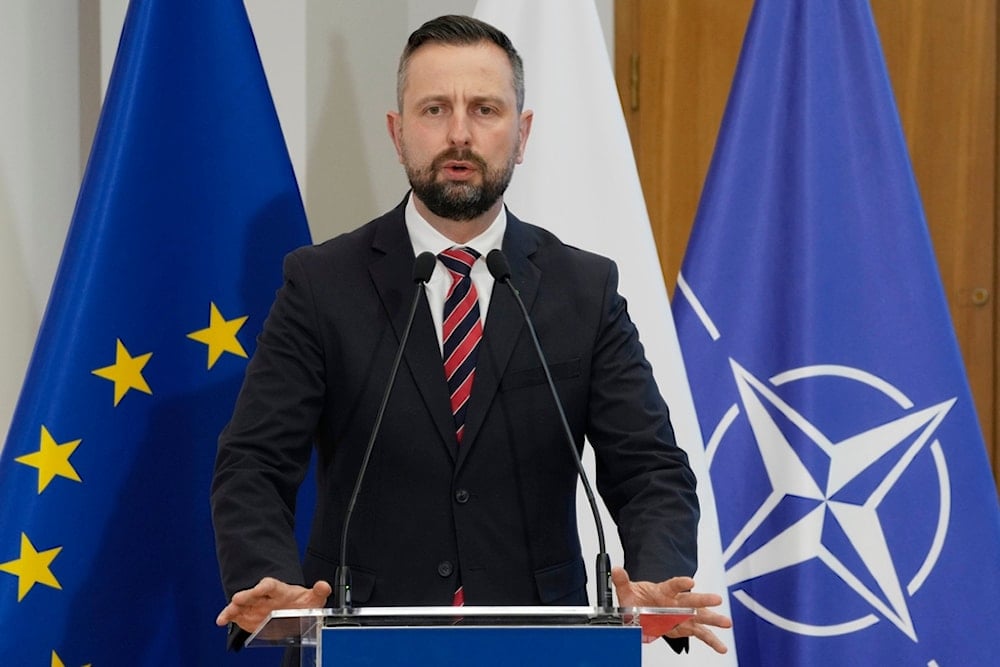Polish Minister criticizes US delay in providing ATACMS to Ukraine
Polish Defense Minister Wladyslaw Kosiniak-Kamysz criticized the delayed US decision to supply Ukraine with ATACMS missiles, questioning its strategic impact.
-

Poland's Defense Minister Wladyslaw Kosiniak-Kamysz speaks about a program of strengthening the defense of NATO's eastern flank in Warsaw, Poland, Monday, May 27, 2024. (AP)
Polish Defense Minister Wladyslaw Kosiniak-Kamysz has voiced criticism over the timing of the United States' decision to allow Ukraine to use long-range missiles for strikes on Russian territory.
Speaking to reporters on Monday, Kosiniak-Kamysz said the delay has raised widespread questions. "I do not think this will be a turning point. It would have a much stronger effect if the decision had been made earlier," he remarked.
The remarks follow a Sunday report by The New York Times, which revealed that President Joe Biden had authorized Ukraine's use of US-supplied ATACMS missiles to strike deep into Russian territory. These missiles, with a range that could target approximately 250 Russian military sites, including 17 air bases, are expected to be deployed primarily in the Kursk region, according to CNN.
Despite the potential tactical advantage, Kosiniak-Kamysz questioned the impact of the delayed authorization, suggesting that earlier action might have shifted dynamics on the battlefield.
Read more: What are the implications of allowing Ukraine to strike inside Russia?
In parallel, France and the UK were reported by Le Figaro to have authorized Ukraine's use of their long-range weapons against Russian targets.
However, the newspaper later removed this information from its article, leaving ambiguity about the extent of Western support for such measures.
Russia issues warning
Kremlin spokesman Dmitry Peskov condemned the move as a provocation, warning that it marks "a new round of tensions."
Russian President Vladimir Putin previously stated in September that NATO countries were not only discussing the use of Western long-range weapons by Ukraine but were also edging closer to direct involvement in the conflict.
Putin warned that such actions would fundamentally change the nature of the war, compelling Russia to respond based on the extent and scope of Western threats.
In a call with German Chancellor Scholz on November 15, Putin stressed that any deals on Ukraine should consider Russian security interests, develop from new geographical realities, and address the core causes of the conflict.
Read more: Trump allies say Biden trying to ignite WWIII over ATACMS decision
Observers argue that while the Biden administration had provided few details about the decision, the deployment of ATACMS could bolster Ukraine's capacity to strike high-value targets deep within Russian territory.
However, experts like Kosiniak-Kamysz remain skeptical of its ability to alter the overall trajectory of the conflict, especially given the delay in its implementation.

 3 Min Read
3 Min Read









